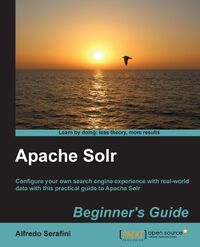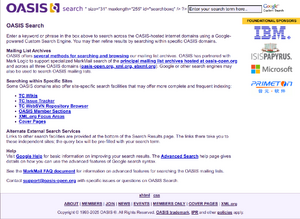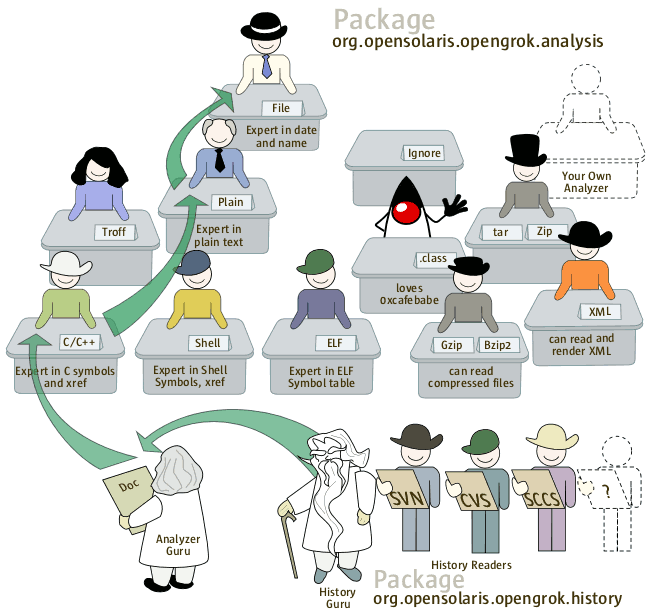Search
2025 update[edit]
Google’s enshittification is real. It used to be that businesses wanted to use SEO to optimize for the Google platform. But that was 10-15 years ago, and we're now at "Google Zero" where Google doesn't really send you outside their platform. So, here's a quick update on some options.
Open Web Engine[edit]
interesting portal to multiple search engines https://openwebengine.com/
AI-overview-free Google search[edit]
udm=14 is easy access to Google Search results using only web results (no AI overviews, knowledge panels, or other fluff). Other advanced filter techniques are still offered in Google's help pages.
User Aids[edit]
Semantic Web Search[edit]

- http://swoogle.umbc.edu Semantic Web Search
Searching for Multimedia[edit]
Want free graphics (as in Libre Graphics)?
When searching for unrestricted graphics content, it is hard to beat the huge commons of WikiMedia Commons. Any image found there can be used under the terms of the (creative commons) license listed -- meaning it can be used here or on your website.
Flickr also has millions of images licensed under creative commons licenses: https://www.flickr.com/creativecommons/
Native (Application) Search[edit]
Applications such as this wiki (runs on MediaWiki), and CMS systems (e.g. Drupal) obviously know their own content. So, usually it would suffice to make use of the search facilities built in to the application. However, this doesn't always ring true -- especially when you consider that search as a service in it's own right is probably more powerful than search as a "feature" that is independently tacked on to each application in your stack.
There is a series of articles about the introduction of Full Text Search (FTS) in InnoDB engine for MySQL 5.6 at https://www.percona.com/blog/2013/02/26/myisam-vs-innodb-full-text-search-in-mysql-5-6-part-1/
Full-text search[1] has since been integrated as a feature of all major SQL database products[2]. And now the world has "moved on" (with considerable overlap since major products also feature vector search) to vector databases offering search based on similarity using different algorithms.
Users and Implementors of MediaWiki, see MediaWiki/Search.
General[edit]


Google offers a service called the Google Custom Search Engine. The Google CSE is much like the 'normal' Google, but is configured to include only domains that you want. Additionally, the domains can be grouped into 'realms' that can be used to assist the user to find content according to functional area.
An example implementation can be seen at the OASIS search site http://search.oasis-open.org
The main limitations of the Google CSE are that
- The content must be public (can't be used for your private Intranet)
- The index will not cover an unlimited amount of content
- The index will not allow custom data formats or indexes that you create... it's Google's algorithms for better or for worse.
To meet these needs, use a product like mnoGoSearch, Apache Solr or mw:Nutch which you are free to install and configure to suit your requirements.
See Category:Internet search engines for a list of search engine solutions.
Editors[edit]
- the Template:Search template helps you insert a 'search' link in wiki pages for searching this wiki, like this This template doesn't work
- There is the 'google' compact uri syntax that allows you to insert links in your wiki pages for queries on google.com like this google:bananas See Namespaces for the full list of compact URI tools including c2find, cache, dejanews, dictionary and rfc.
Developers[edit]
Search your code. Can you 'grok' it?[edit]

LXR The Linux Cross Reference is probably the first widely used web-based code cross-reference tool. Along came OpenGrok which started out as a project at Sun (which was bought by Oracle) and now the project lives on its own in the open. OpenGrok is lightening fast and is actively maintained as an open source project on GitHub. By the way, the underlying search is powered by SOLR. Meanwhile, Kohsuke Kawaguchi the magic man behind Jenkins (n�e Hudson), also wrote Sorceror which understands semantics in Java. Sadly, Sorceror code hasn't been touched in 4 years and doesn't seem to be an active project - but for Java codebases, it's probably still a good option.
Hound is used by the WMF to provide multi-repository search across all WMF projects - including external repositories for 3rd-party extensions. Called MediaWiki Codesearch, the primary instance is at https://codesearch.wmcloud.org/search/
MozSearch is the engine behind Searchfox allowing to search the 21 millions of lines of code in the Mozilla project.
Elasticsearch is a search engine based on Apache Lucene and is used by the MediaWiki software (through extensions) to offer search; and is also the default backing store for the Semantic MediaWiki extension. WMF staff have decided to migrate off ElasticSearch onto the fork, called OpenSearch. (not to be confused with the long-standing syndication standard for search interfaces See OpenSearch standard)
OpenSearch is a community-driven, Apache 2.0-licensed open source search and analytics suite that makes it easy to ingest, search, visualize, and analyze data. The OpenSearch Dashboards component is equivalent to the Kibana tool of Elastic.
Search Engine Optimization (SEO)[edit]
How do you make your website Search-engine friendly? How do you get 'organic' traffic from Google? It's all about SEO.
See Also[edit]
- ↑ In text retrieval, full-text search refers to techniques for searching a single computer-stored document or a collection in a full-text database. Full-text search is distinguished from searches based on metadata or on parts of the original texts represented in databases.
- ↑ List of software